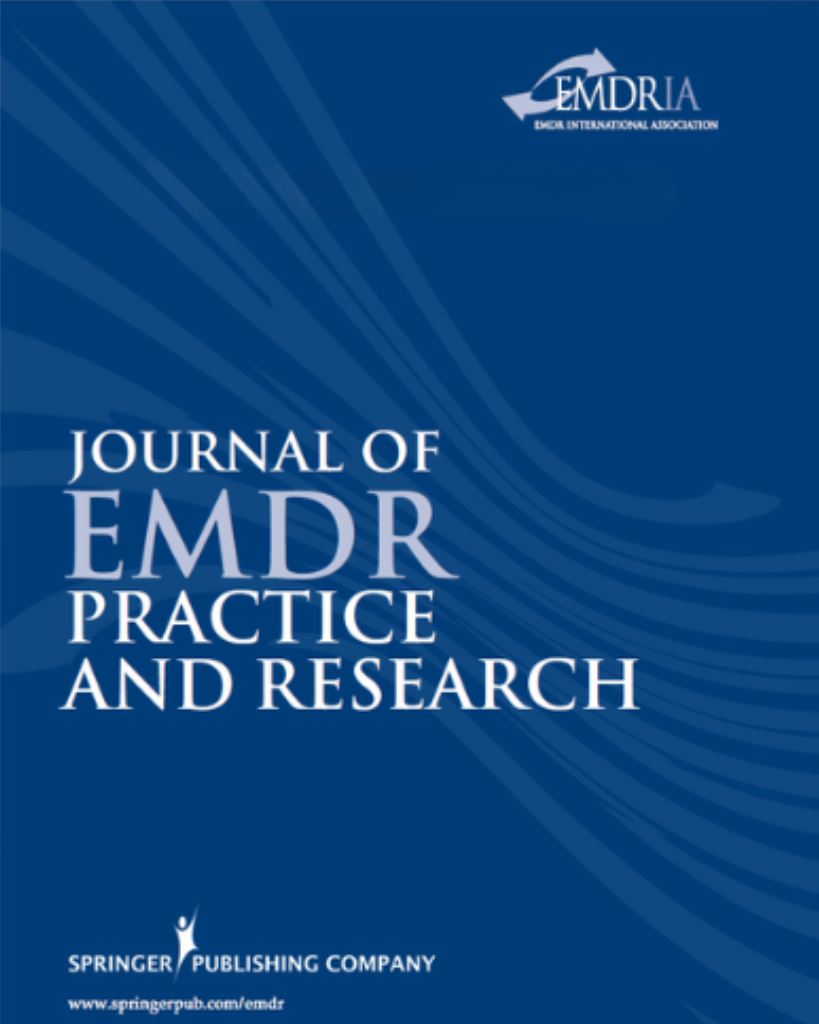Changing negative autobiographical memories in the lab: A comparison of three eye-movement tasks
Study testing if eye-movement tasks that load working memory while thinking of a memory reduces the emotionality/vividness of this memory.
Article Abstract
“There is strong evidence that executing eye-movement (EM) tasks that load working memory (WM) while thinking of an emotional memory reduces the emotionality and vividness of this memory. According to WM theory, EM tasks that load WM more should be more effective to devalue emotional memories. In this study, we compared three EM tasks: dot tracking, letter identification, and a combination of dot tracking and letter identification. First, participants completed a reaction time (RT) task to assess the WM load of the three EM tasks relative to a control task (viewing a black screen). Then, participants were asked to think of a negative autobiographical memory while executing one of these EM tasks and asked to recall another negative memory while executing the control task. Before and after each task, participants rated emotionality and vividness of the memory. All EM tasks slowed down RTs relative to the control task, and the letter identification task induced the largest RTs. Reductions of vividness relative to the control task, however, were comparable across the EM tasks, and there were no reliable reductions of emotionality. We discuss these findings in light of the WM theory and alternative theories for the effects of dual-task interventions.”
—Description from publisher
Article Access
Open Access
Mertens, G., Krypotos, A.-M., van Logtestijn, A., Landkroon, E., van Veen, S. C., & Engelhard, I. M. (2019). Changing negative autobiographical memories in the lab: A comparison of three eye-movement tasks. Memory, 27(3), 295–305. https://doi.org/10.1080/09658211.2018.1507041
Date
March 1, 2019
Creator(s)
Gaëtan Mertens, Angelos-Miltiadis Krypotos, Arlaine van Logtestijn
Contributor(s)
Elze Landkroon, Suzanne C. van Veen, Iris M. Engelhard
Practice & Methods
Mechanisms of Action
Extent
11 pages
Publisher
Routledge
Rights
© 2018 The Author(s). Published by Informa UK Limited, trading as Taylor & Francis Group. This is an Open Access article distributed under the terms of the Creative Commons Attribution-NonCommercial-NoDerivatives License (http://creativecommons.org/licenses/by-nc-nd/4.0/), which permits non-commercial re-use, distribution, and reproduction in any medium, provided the original work is properly cited, and is not altered, transformed, or built upon in any way.
APA Citation
Mertens, G., Krypotos, A.-M., van Logtestijn, A., Landkroon, E., van Veen, S. C., & Engelhard, I. M. (2019). Changing negative autobiographical memories in the lab: A comparison of three eye-movement tasks. Memory, 27(3), 295–305. https://doi.org/10.1080/09658211.2018.1507041
Audience
EMDR Therapists, Other Mental Health Professionals
Language
English
Content Type
Article, Peer-Reviewed
Access Type
External Resource, Open Access




